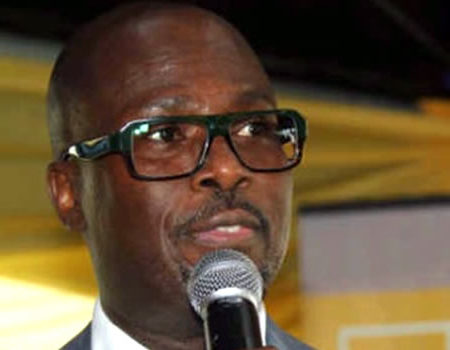Speaking at a Breakfast Lecture titled ‘Petroleum Industry Bill: Challenges and Opportunities,’ organised by the Island Club, Lagos, the stakeholders however said it offered opportunities for prosperity to all participants in the industry.
According to the Chief Executive Officer, Yinka Folawiyo Petroleum Company Limited, Mr Tunde Folawiyo, “When the Bureau of Public Enterprise (BPE) holds 49 per cent of an asset, we all know what that means. It means we are preparing for another public ownership. BPE is not set up to own asset; it was set up to privatise public assets.”
Folawiyo further emphasised that there is “nothing in the proposal that has provision to reducing gas flaring which is one of the major challenges the country is facing. It will not also be subject to Procurement Act. This appears counterproductive. Accountability and transparency will suffer for this.
“There is no provision about ownership of pipelines, depot and other assets of government. Nothing is also mentioned in terms of pricing mechanism for downstream sub-sector.”
He, however, added that opportunities abound in the bill which is a great start for the country’s oil sector.
The Chief Executive Officer of Wema Bank, Segun Olaketuyi, represented by Head, Energy Desk of Wema Bank, Segun Oderinde, stated that PIGB was to separate the Minister of Petroleum Resources from the industry and the industry from the minister.
“PIGB is to ensure that producers must key their supply obligations on gas. This is an opportunity because over 28 per cent of banking sector loans portfolio was devoted to the oil and gas sector,” he said.
The President, Business School, Netherlands, Mr Lere Baale added that Nigerians “should not only be excited by the level of progress being made on the bill but also look for opportunities that the bill comes up with.”
His view was corroborated by the Chairman, the Island Club, Mr Banji Oladapo, who maintained that members of his club were already working round-the-clock to take full advantage of the opportunities inherent in the PIGB.
In his presentation titled: ‘The Petroleum Industry Bill: Opportunities and Challenges,’ Chief Anthony Idigbe, SAN, said that the PIGB had obvious drawbacks.
“Presently, only the first fragment of the PIB has been passed by the Senate, that is, the PIGB. It must be observed that the PIGB only deals with one aspect of the PIB, that is the governance and institutional framework of the Nigerian petroleum industry, and as such would not deliver the full benefits of the intended reforms except if the other aspects of the PIB such as the Petroleum Host Community Fund and Petroleum Fiscal Regime were also passed into law.
“For instance, we know that one of the major challenges facing the Nigerian petroleum industry is host community and Niger Delta issues. Until the recent peace diplomacy to the oil region by the Acting President, Yemi Osinbajo, the militant attacks in the Niger Delta led to significant amounts of shut-in production at onshore and shallow offshore fields and frequent declaration of force majeure by oil and gas companies in Nigeria,” the legal luminary said.
This, Idigbe continued, had led to drastic decline in revenue projections and crude oil barrels for 2016 to 2018 from 2.2mbpd-2.5mbpd down to a mere 1.5mbpd in 2016, thereby worsening Nigeria’s economic crisis and pushing the country deeper into recession, exchange rate crisis, and stagflation.
“Therefore, it is important that any legislation to address the challenges in the Nigerian oil and gas industry must make provisions on how to effectively address the petroleum host community issues,” he said.
Similarly, he added that the non-inclusion of the Petroleum Fiscal Regimes aspect of the Petroleum Industry Bill (PIB) may mean that investors will continue to adopt a wait and see attitude, refraining from making any new major investment decision in Nigeria.
“The fact is that it is the Fiscal Regime aspect of the PIB that will guide the final decision of investors on how much to invest in the Nigerian petroleum sector as it has direct impact on the economics of the investments in the Nigerian oil and gas sector vis-a-vis other Petroleum host countries. This aspect is therefore, very critical!”
“I adopt the view of a writer on the issue of the prolonged evolution of the PIB to say that progress is better than perfection. This fits perfectly when one thinks of the several attempts that have been made in the past to pass the almighty PIB. In line with recommendations made by various stakeholders, the government has decided to break it up and pass it in parts. While the version approved by the Senate is not perfect by any means, it is progress nonetheless – which is what we need in Nigeria right now,” he concluded.
Also Read:
We don’t need privatisation of refineries, but efficient management of refineries, depots —Korodo
We don’t need privatisation of refineries, but efficient management of refineries, depots —Korodo






